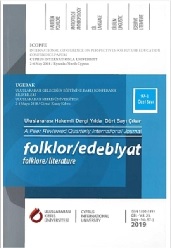Üç Farklı Tekrarlı Okuma Stratejisinin Dikkat Eksikliği ve Hiperaktivitesi Olan Bir Öğrenci Üzerindeki Etkililiği
Effectiveness of Three Different Repetitive Reading Strategies on a Student with Attention Deficit and Hyperactivity
Author(s): Gül KahveciSubject(s): Pragmatics, Psycholinguistics, School education, Educational Psychology
Published by: Uluslararası Kıbrıs Üniversitesi
Keywords: Repetitive reading; reading fluency; attention deficit hyperactivity disorder;
Summary/Abstract: Today, students are expected to perform with higher academic competence than ever before. Reading fluency is a basic skill for reading and writing; As a result, students with poor reading skills are under the risk of experiencing a range of negative experiences in the school setting and in society. On the other hand, for the acquisition of reading fluency, the reading skill that is automated by means of the individual reading programs and the speed achieved when the application is performed can support the formation of a more qualified reading. Reading fluency is the dependent variable of this research. In this study, an adapted alternating treatments design modified from comparative single-subject research models were used. The participant is a male student who is in grade five in primary school in the TRNC who has had a grade deficit and has a reading difficulty associated with Attention Deficit and Hyperactivity disorder. In this study, among three methods; repetitive reading methods, repetitive reading, the first teacher's reading and reading after the syllable repetitive reading, last method has the highest efficiency. It was determined that the number of correct words that the participant reads per minute increased from 20 at the beginning to over 80 during the intervention process. After knowing all the letters in the case of inadequate blending activities in the syllable, vocabulary and sentence reading forms it can be an appropriate strategy to return to the stage of blending in syllable form and perform related activities.
Journal: Folklor/Edebiyat
- Issue Year: 25/2019
- Issue No: 97-1
- Page Range: 611-638
- Page Count: 28
- Language: Turkish

